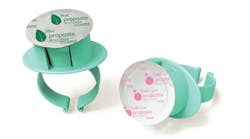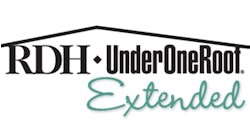To some, a DSO—which stands for dental service organization or dental support organization—means limited freedom, cash grabs, and low-quality care. Unfortunately, these misconceptions can deter hygienists from pursuing viable and satisfying career options as part of an expert local team that brings important care to patients.
What exactly is a DSO? A DSO provides all nonclinical business services for dental practices so dentists can focus solely on patient care. The model has been around for decades, but the DSOs of today are very different from those of 20 years ago. With more than 40 years as a hygienist and nearly 15 in the DSO space, I have witnessed the realities of how these support systems work and how they can lead to more comprehensive and efficient patient care, in addition to providing exciting development opportunities for clinical professionals.
More from DSO dental professionals
Why you should perform oral cancer screenings on every dental patient
What's on my tray: Some favorite tools of a DSO RDH
I want to share my knowledge and experiences to help younger hygienists become excellent health-care providers, and one of the best ways to do this is by dispelling the myths surrounding DSOs. Here are five common misconceptions, along with the truth behind the fiction.
Misconception 1: All DSOs are the same
DSOs are not all created equal. Support models, cultures, and focuses vary from organization to organization. For example, some DSOs focus solely on implants, and others on pediatric or specialty dentistry. At Aspen Dental, we focus on general dentistry and hygiene and have an owner–doctor model where we provide all the business support, and the owner–doctor has full control of the clinical direction. Another key focus is customized professional development tailored to each individual to equip them for the career of their choice.
Because of the variety of DSOs, the right one for you depends on what you’re looking for in terms of focus and career trajectory.
Misconception 2: DSOs tell clinicians what to do
Many people think DSOs limit clinical autonomy, but that is not the case. It’s the clinicians who make the clinical decisions for patients, and the DSO exists to provide business support only, alleviating administrative burdens to allow doctors, hygienists, and their teams to spend time supporting and caring for patients. Aspen Dental will never tell a doctor or dental support professional how to approach a case or treat a patient. Under Aspen Dental’s owner-doctor model, associate doctors and hygienists work with each owner–doctor to establish clinical protocols, building a practice philosophy that suits everyone and meets the unique needs of patients. The DSO is completely separate from the clinical functions of the practice and works to support the owner–doctor’s clinical protocols.
DSOs don’t limit clinical freedom—they actually enhance it by taking care of all nonclinical functions so that clinicians can focus solely on patients.
Misconception 3: DSOs only care about money
Running a healthy business is important, but that does not mean sacrificing quality patient care for profit. In a DSO, there’s a separation of church and state—the DSO works to ensure a healthy, profitable business while clinicians focus on delivering high-quality care to patients.
DSOs offer economies of scale with respect to supply chain, technology access, and professional development. For example, Aspen Dental is supporting the conversion of all offices in the network to digital technology and systems, which simplifies patient intake, records, and innovative care technologies such as 3D printing that allow same-day care. When we run an efficient business, we can create access to care for more patients, and that’s where we see the true impact of the DSO model.
Misconception 4: DSOs mean “burn and churn”
Many people assume DSOs are about efficiency over patients. But at Aspen Dental, each practice is individually owned, providing that “small business” attention to patients, with network resources and technology. At Aspen Dental, hygienists are in charge of their own schedules to give patients what they need, and they can take time to educate patients about home care and overall health. For example, hygienists get at least one hour per patient, with the ability to adjust that time frame up or down depending on the difficulty of the case.
Misconception 5: DSOs diagnose too much dentistry
What might look like “too much dentistry” is actually a comprehensive, transparent approach to dental care. With DSOs like Aspen Dental, clinicians focus on comprehensive treatment plans that can be staged out based on a patient’s chief concerns. From there, clinicians can bring patients back to optimal oral health. At local offices in the Aspen Dental network, many patients are in great need of extensive dentistry because they’ve lacked access to care. Clinicians will share a comprehensive treatment plan and offer pricing up front so that a patient is fully aware of the recommended treatment plan and costs so they can make an informed decision. This holistic approach, combined with pricing transparency, empathy, and understanding, empowers patients to achieve their oral health goals.
There’s nothing like firsthand experience
Ultimately, nothing can dispel DSO misconceptions faster than experiencing a DSO for yourself. If you’re interested in growing professionally and personally and want to be part of something bigger than a single private practice, consider working with a DSO. Besides health insurance, paid vacation, sick days, and a 401k, Aspen Dental also offers world-class training and development opportunities, continuing education, and mentorship provided by a robust clinical support team dedicated to your clinical development.
Remember, though, that not all DSOs are the same. When interviewing for a position affiliated with a DSO, be sure you engage with the owner–doctor and ask about their practice philosophy to ensure you and the owner–doctor are aligned on patient care.
If you’re committed to maximizing your growth and development and delivering the highest quality of care to the patients you serve, a DSO just might be the right choice for you.






